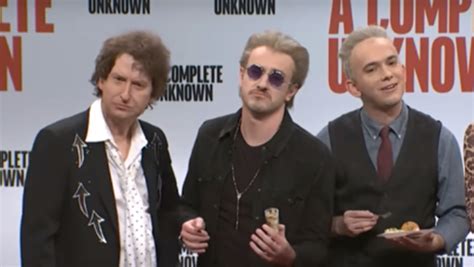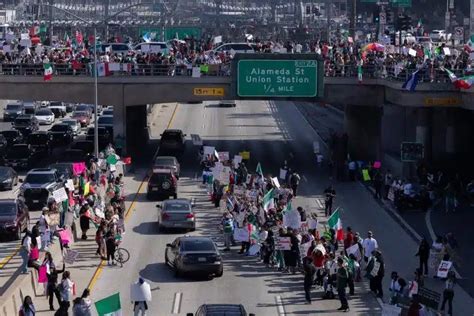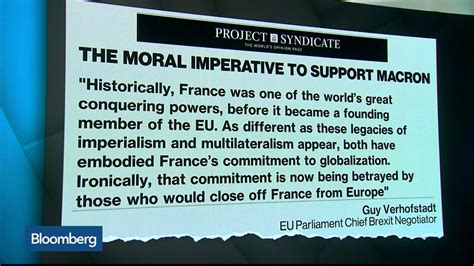
Bono has weighed in on the recent controversy surrounding Bruce Springsteen’s political statements, offering a nuanced perspective that acknowledges both the artist’s right to express his views and the potential for such expressions to alienate segments of his fanbase. The U2 frontman’s comments come amidst a heated debate sparked by Springsteen’s increasingly vocal stance on contemporary political issues.
Bono addressed the controversy, stating, “Bruce has every right to speak his mind, as we all do. He’s an American artist speaking to American issues.” However, he also noted the inherent risk in politicizing one’s art, saying, “When you take a stand, you inevitably divide. That’s the nature of the beast.” Bono’s remarks, delivered during a recent interview, have added another layer to the ongoing discussion about the intersection of art, politics, and celebrity influence. Springsteen’s recent comments, particularly those critical of certain political figures and policies, have ignited fervent reactions across the political spectrum, prompting some fans to applaud his outspokenness while others have criticized him for injecting politics into his music.
The U2 frontman’s measured response highlights the complexities of navigating political discourse as a public figure. While acknowledging the importance of artistic freedom and expression, Bono also underscored the potential ramifications of taking polarizing stances, particularly in an era of heightened political polarization. His intervention arrives as the debate continues to unfold in media outlets, social media platforms, and among Springsteen’s dedicated fanbase.
The debate intensified following Springsteen’s pointed critiques during his concerts and public appearances. His remarks, perceived by some as attacks on specific political ideologies, have stirred a mix of support and condemnation. Amid this escalating controversy, Bono’s comments offer a voice of reason, prompting reflection on the delicate balance between artistic expression and political responsibility.
Bono, known for his own activism and humanitarian work, possesses a unique understanding of the challenges and opportunities that come with using one’s platform to advocate for social and political change. His remarks on the Springsteen controversy reflect his experience navigating similar terrain, offering valuable insight into the complexities of engaging in political discourse as a public figure.
“He is speaking from his heart, and you can’t fault a man for that,” Bono stated, emphasizing the importance of authenticity in artistic expression. However, he also cautioned against the potential for alienating fans, adding, “The challenge is to do so without losing sight of the common ground that unites us.”
The comments from Bono arrive at a crucial juncture in the debate, offering a more comprehensive understanding of the issues at stake. It’s clear that this is more than just a disagreement about politics; it’s a conversation about how artists use their platform, what fans expect from them, and the role of celebrity in shaping public discourse.
The original article highlighted Bono’s neutral but understanding stance regarding Springsteen’s pronouncements. In an era defined by constant connection through social media, celebrities’ opinions often carry significant weight. The viewpoints of influential figures like Springsteen and Bono carry substantial weight, capable of swaying public sentiment and influencing social discourse. This places an inherent responsibility on these figures to carefully consider the impact of their words and actions.
The ongoing debate also brings to light the evolving role of artists in society. Are they simply entertainers, or do they have a responsibility to use their platform to address social and political issues? There is no easy answer to this question, and the answer can vary from artist to artist. But the fact that the question is being asked at all speaks to the growing expectation that artists will be more than just entertainers, and that they will use their platform to make a difference in the world.
Springsteen has long been an icon in American music, but in recent years he has become increasingly outspoken about his political views. This has led to both praise and criticism, as some fans have applauded him for using his platform to speak out on important issues, while others have accused him of alienating those who do not share his political beliefs.
Bono, who has also been an outspoken activist on a variety of issues, seems to understand the position that Springsteen is in. He acknowledges that Springsteen has every right to speak his mind, but he also cautions against the potential for alienating fans.
This debate is likely to continue for some time to come, as there is no easy answer to the question of how artists should use their platform. But one thing is clear: the role of the artist in society is changing, and artists are increasingly expected to be more than just entertainers.
The current socio-political climate, marked by deep divisions and heightened sensitivities, serves as the backdrop for this debate. Springsteen’s comments, which may have been less controversial in a different era, have struck a nerve with many people who feel that their views are not being represented in mainstream culture.
Bono’s remarks offer a refreshing dose of perspective in a debate that has often been characterized by partisan rhetoric. He acknowledges the validity of both sides of the argument, and he urges people to find common ground despite their differences.
In conclusion, the controversy surrounding Springsteen’s political statements and Bono’s response highlights the complex relationship between art, politics, and celebrity influence. It raises important questions about the role of artists in society, the expectations of fans, and the responsibility of public figures to engage in political discourse responsibly.
Expanded Context and Analysis:
The core of this debate centers on the inherent tensions between artistic expression, political engagement, and audience expectations. Celebrities, particularly those with established fan bases, wield considerable influence, and their pronouncements on social and political matters can significantly impact public opinion. However, this influence also carries a responsibility to be mindful of the potential consequences of their words and actions.
Springsteen’s political activism is not a new phenomenon. Throughout his career, he has addressed social issues in his music, often highlighting the struggles of working-class Americans. However, his more recent, direct criticisms of specific political figures and policies have sparked a new level of controversy. This shift in tone has led some fans to question whether he is using his platform appropriately, while others defend his right to speak his mind.
Bono’s response is particularly insightful because he himself has navigated similar challenges. As a prominent activist, he has used his platform to raise awareness about issues such as poverty, AIDS, and climate change. However, he has also faced criticism for his political stances, with some accusing him of being out of touch or using his activism to promote his own career.
Bono’s comments suggest that he understands the tightrope that artists walk when they engage in political discourse. On one hand, they have a right to express their views and use their platform to advocate for change. On the other hand, they risk alienating fans and undermining their artistic credibility if they are perceived as being too partisan or preachy.
The debate also reflects a broader trend in society, where people are increasingly divided along political lines. In this environment, it can be difficult for artists to address social issues without being accused of taking sides. This can lead to a chilling effect, where artists are hesitant to speak out on controversial topics for fear of alienating their fans.
However, some argue that it is more important than ever for artists to use their platform to address social and political issues. In a world facing numerous challenges, from climate change to inequality, artists have a unique ability to raise awareness, inspire action, and promote dialogue.
The key, according to Bono, is to strike a balance between expressing one’s views and maintaining a sense of empathy and understanding for those who hold different beliefs. He suggests that artists should focus on finding common ground and promoting unity, rather than exacerbating divisions.
Ultimately, the debate surrounding Springsteen’s political statements and Bono’s response raises important questions about the role of art in society. Are artists simply entertainers, or do they have a responsibility to use their platform to address social and political issues? There is no easy answer to this question, and the answer may vary depending on the artist and the issue. However, it is clear that artists have a powerful voice, and they have the potential to make a significant impact on the world.
The current controversy serves as a microcosm of the larger societal discourse on freedom of speech, political correctness, and the role of celebrity influence. As society becomes increasingly polarized, the lines between personal expression and public responsibility become blurred, leading to heightened scrutiny and passionate debate.
The implications of this debate extend beyond the realm of music and entertainment. It has the potential to shape how artists and public figures engage in political discourse in the future. Will they be more cautious about expressing their views, or will they become even more outspoken? The answer remains to be seen, but it is clear that the current controversy has raised important questions about the intersection of art, politics, and celebrity influence.
The Role of Social Media
Social media has played a significant role in amplifying the debate surrounding Springsteen’s political statements. Platforms like Twitter, Facebook, and Instagram have provided a space for fans and critics alike to express their opinions, share articles, and engage in heated discussions.
The immediacy and reach of social media have also contributed to the intensity of the debate. A single tweet or post can quickly go viral, reaching millions of people and sparking a wave of reactions. This can create a sense of urgency and pressure, making it difficult for artists to navigate the controversy in a thoughtful and measured way.
Social media has also made it easier for people to express their disapproval of artists who take political stances they disagree with. Online petitions, boycotts, and negative reviews can all be used to punish artists for their political views. This can create a chilling effect, where artists are hesitant to speak out on controversial topics for fear of facing online backlash.
However, social media can also be a powerful tool for artists who want to use their platform to promote social and political change. It allows them to connect directly with their fans, share information, and mobilize support for their causes.
The Fan Perspective
The debate surrounding Springsteen’s political statements has also raised questions about the relationship between artists and their fans. Do fans have a right to expect their favorite artists to remain neutral on political issues? Or do artists have a right to express their views, even if those views are unpopular with some fans?
Some fans argue that artists should focus on their music and leave politics out of it. They believe that artists who take political stances are alienating fans who do not share their beliefs and that they are using their platform to promote their own agenda.
Other fans argue that artists have a responsibility to use their platform to speak out on important issues. They believe that artists have a unique ability to reach people and inspire change and that they should not be afraid to use their voice to make a difference in the world.
Ultimately, the relationship between artists and their fans is a complex one, and there is no easy answer to the question of how artists should use their platform. However, it is clear that artists have a powerful voice, and they have the potential to make a significant impact on the world.
The Impact on Springsteen’s Career
It is difficult to predict the long-term impact of the controversy surrounding Springsteen’s political statements on his career. Some fans may be turned off by his outspokenness and choose to no longer support his music. Others may be even more supportive of him because of his willingness to speak out on important issues.
It is possible that the controversy could lead to a decline in Springsteen’s record sales and concert attendance. However, it is also possible that it could lead to an increase in his popularity, as people rally around him and support his right to express his views.
Ultimately, the impact on Springsteen’s career will depend on a variety of factors, including the intensity of the controversy, the public’s reaction to his statements, and his own response to the criticism.
The Broader Implications
The debate surrounding Springsteen’s political statements and Bono’s response has broader implications for the role of art in society. It raises important questions about the relationship between artists, politics, and the public.
It is clear that artists have a powerful voice and that they have the potential to make a significant impact on the world. However, it is also clear that artists face challenges when they engage in political discourse. They risk alienating fans, undermining their artistic credibility, and facing online backlash.
Despite these challenges, it is important for artists to continue to use their platform to address social and political issues. In a world facing numerous challenges, from climate change to inequality, artists have a unique ability to raise awareness, inspire action, and promote dialogue.
Conclusion
The intersection of art and politics is a complex and often contentious landscape. Bono’s recent remarks concerning Bruce Springsteen’s political activism add another dimension to the ongoing debate. This situation highlights the challenges that prominent figures face when they express their political views publicly, as well as the potential for such expressions to impact both their careers and their relationships with their fans. The evolving role of artists in society continues to spark crucial conversations about influence, responsibility, and the delicate balance between personal expression and public perception.
Frequently Asked Questions (FAQs)
1. What sparked the debate involving Bruce Springsteen and Bono?
The debate was sparked by Bruce Springsteen’s increasingly vocal political statements, particularly his criticisms of certain political figures and policies. This led to mixed reactions, with some fans supporting his outspokenness and others criticizing him for injecting politics into his music. Bono weighed in on the controversy by acknowledging Springsteen’s right to express his views while also noting the potential for such expressions to alienate segments of his fanbase.
2. What was Bono’s stance on Bruce Springsteen’s political comments?
Bono adopted a nuanced perspective, stating that Springsteen has every right to speak his mind, as we all do, but also noting the inherent risk in politicizing one’s art. He acknowledged that taking a stand inevitably divides, but emphasized the importance of authenticity in artistic expression. Bono urged for finding common ground and promoting unity despite differences.
3. How do social media platforms influence such debates?
Social media platforms have significantly amplified the debate by providing a space for fans and critics to express their opinions, share articles, and engage in heated discussions. The immediacy and reach of social media contribute to the intensity of the debate, and online petitions, boycotts, and negative reviews can be used to punish artists for their political views.
4. What are the broader implications of this debate on the role of artists in society?
The debate raises important questions about the role of art in society, specifically whether artists are simply entertainers or if they have a responsibility to use their platform to address social and political issues. It highlights the challenges artists face when engaging in political discourse, including the risk of alienating fans and facing online backlash.
5. How might this controversy impact Bruce Springsteen’s career in the long term?
The long-term impact on Springsteen’s career is difficult to predict. Some fans may be turned off by his outspokenness, while others may be even more supportive. It could lead to a decline in record sales and concert attendance, or it could lead to an increase in his popularity. Ultimately, the impact will depend on the intensity of the controversy, the public’s reaction, and Springsteen’s response to the criticism.









